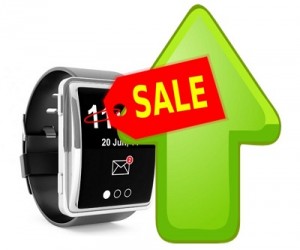Wearable technology sales have shown that the industry is hot and getting hotter
According to Valencell, there will soon be a day when wearables are commonplace but we’re not there, yet.
Performance biometric tech firm, Valencell, has recently stated that while the industry is headed toward a time when it will be difficult to imagine our lives without wearable technology, we have not yet reached that point and there are some very specific reasons to explain that.
The success of the Fitbit IPO, and the sales recorded by the Apple Watch are showing that wearables are growing.
Valencell has explained that while consumers are interested in wearable technology at the moment, these gadgets have not yet reached the point in which they are providing health feedback with the accuracy that they are seeking. This statement was made in a report made by the company based on a study conducted by their team with a focus on wrist wearables. What the team determined was that the PerformTek biometric tech that their company produced was able to deliver heart rate data when worn on the wrist to a degree that it was comparable to the readings collected by way of a chest strap.
The wearable technology research also indicated that the Apple Watch was not able to meet that goal.
 The researchers found that the Apple Watch was particularly incapable of collecting accurate heart rate feedback during physical activity.
The researchers found that the Apple Watch was particularly incapable of collecting accurate heart rate feedback during physical activity.
While it is important to note that this research that praises the PerformTek biometric technology was conducted by Valencell’s own team, meaning that it is more than likely that biases – deliberate or completely unintentional – could be present, this study does raise a very important point with regards to the accuracy of biometric information that is being collected by way of mobile devices.
Previous studies have indicated that many medical professionals and organizations are not yet comfortable recommending the use of wearables for the collection of fitness and medical data simply because they have not yet been adequately studied in order to know whether or not their feedback should be considered to be satisfactory as a basis for making medical or fitness recommendations.
Until the reliability of wearable technology biometric data can be improved and proven, it is likely that this factor will continue to hold back its adoption among the general public.

